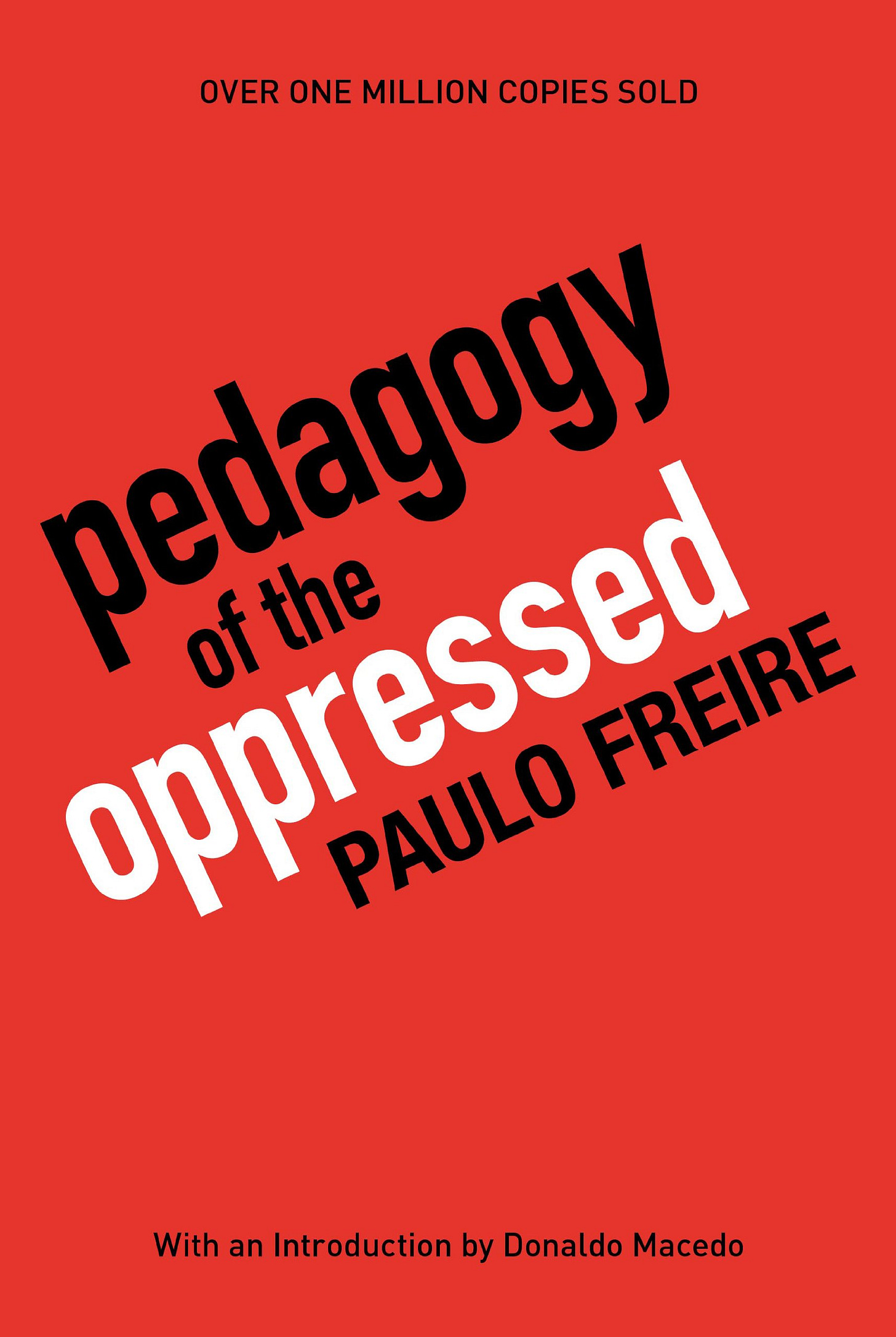The misconception that sunders flourishing (part one)
A two-part essay on the most debilitating mental model of flourishing and how we reclaim a more robust conception.
Part One: Examining what we have been assuming about flourishing
"How one can keep flourishing when one is continuously surviving in a constricting environment?"
This question, genuine and beseeching, posed during the 'Flourishing Salon' we held in December 2024 at the National Academy of Sciences (video, podcast), cuts to the heart of a profound misconception about flourishing. Too often, we assume flourishing is a privilege—something to be considered only after material comfort is secured. This belief is not only false but damaging. It limits who participates in the conversation and, in so doing, diminishes what flourishing can mean for all of us.
Some common ground
Before we challenge this misconception, we need a shared understanding of what flourishing is—and what it is not. Too often, discussions of flourishing are derailed by fundamental misunderstandings.
The first thing that needs to be written about flourishing in order to close the gap between the great misconception and what I believe to be a more muscular concept is that we are not talking about some measure of success in business or elsewhere or any amount of 'progress' as the stereotypical western culture might conceive of those things. I am writing about flourishing as a relational, physical, cognitive, lived and living process, and that is quite different.
Second, flourishing is not synonymous with happiness or pleasure and as discussed below it stands in opposition to the idea of some eternal and final bliss.
Once we agree on those things, then there is one great misconception.
The Greatest Misconception
And so, "How one can keep flourishing when one is continuously surviving in a constricting environment?"
It was an online comment, anonymity and disembodiment attending to the statement as is the nature in hybrid settings, but for this statement it acted to underscore the question: as if it existed in each of our consciousnesses rather than as a pointed question in the conversation. And such is the characteristic of the idea: silent, omnipresent, damaging.
The idea has been bothering me. It's too common a question not to have merit, too clearly important not to warrant a place at the core of a theory of flourishing. I feel flourishing to be more than this, less susceptible to collapse. It must be. Is it?
The most debilitating misconception about flourishing is that it is only a conversation for the privileged. Said another way, and I find myself needing to say it many ways: Flourishing as an idea, an ideal, and a way of being, is irreversibly altered as a notion by the belief that it is only a conversation for those who have secured comfort and stability. This belief is so deeply ingrained that it often goes unchallenged, reinforcing the idea that material comfort must precede flourishing rather than recognizing that flourishing pervades scarcity and challenge and hardship and struggle as much as comfort and affluence. 'Flourishing' and 'surviving' are not two points along a continuum, but categorically different. Material and psychological safety are vital elements of flourishing, but how do we get there? Their existence cannot be a prerequisite for entering into the conversation.
This is not to miss the online comment's heartfelt and meritorious insinuation: flourishing is often appropriated for a tone deaf, ultimately disingenuinuous, closed exchange among the privileged. We (an immense 'we') need to reclaim what flourishing could be, what indeed we need it to be now.
The question points to a concern for who is left out of the conversation, whose voices are marginalized (and a depressing number are), and what perspectives are deemed 'valid' in discussions about the good life. These are utterly important. And that is the point. "Word is not the privilege of some few persons but the right of everyone," writes Brazilian educator and activist Paulo Freire. As long as we go on believing only those with the comfort to ruminate on such 'lofty' ideals, as long as only those select few are allowed to define it, it will remain small, a topic only of closed rooms and heavy-handed opinions, unexperienced and unknown.
Every room should be thinking of flourishing; it should be a point of commonality, and eventually of belonging. International peacebuilder John Paul Lederach alludes to this role flourishing could play in his concept of 'moral imagination.' It is the capacity to imagine something rooted in the challenges of the real world yet capable of giving birth to that which does not yet exist. The crucible for moral imagination has been decades-long work within broken, conflicted communities. Atul Gawande, a surgeon and public health official with moving and artful perspectives about end-of-life care and philosophy, writes, “We’ve been wrong about what our job is in medicine. We think our job is to ensure health and survival. But really it is larger than that. It is to enable well-being.” If those who sit in rooms of immense brokenness, of confrontation with mortality, and whose work is reconciliation, healing, and living well together invoke flourishing, what are we missing in making it taboo in all but the most comfortable settings?
Because of our fear to invoke the concept and our unwillingness to acknowledge the role it must play in calling all of us to a higher place, instead of a robust concept we have an impoverished notion. This is a tragedy for all people.
The tragedy unfolds not only in who it excludes from the conversation, but in the impoverishment of the conceptions of flourishing that we are left with, the result of so few and so limited imaginations. One way it is impoverished is the belief that flourishing is unending and uninterrupted bliss. Western culture, particularly in its Christian traditions, often frames flourishing as a final destination—an endpoint of unbroken bliss, exemplified by the notion of heaven. This vision has shaped modern conceptions of success and fulfillment, leading to three damaging assumptions: (1) that flourishing is an endpoint rather than an ongoing process, (2) that it is defined by the absence of suffering, and (3) that only certain people are worthy of attaining it. These assumptions weaken our understanding of what it means to live well.
Seeking a new canon for flourishing
I'm resisting this image of flourishing or at least questioning what it lacks. The image of flourishing I'm attempting to express is full of frailty and vulnerability, of needfulness and the community and belonging that it calls us into. A collective way of being is among the essence of flourishing, part of its formation; inextricable indeed. Professor of philosophy at the University of Sheffield, Angie Hobbs, contends: "For me, flourishing is about the actualization of potential, the fulfillment of all intellectual, imaginative, affective, and physical faculties. In my version, your individual flourishing to some extent depends on the flourishing of your community. And in fact, in turn, it will further the flourishing of your community. It's a two way interaction."

New lenses on flourishing
There are conceptions of flourishing beyond those from the western canon of thought.
Feminist philosophy, liberation theology, indigenous and ancient wisdom traditions, the sciences of anthropology and ecology all go further. One thing they rest on is this: my flourishing depends on yours. They are entangled. Trailblazing feminist philosopher Simone de Beauvoir wrote, "To will oneself free is also to will others free." Just as being compassionate or kind cannot be a behavior you engage in only when it is convenient for you or when things are going well, flourishing cannot be a conversation only from within privilege and material comfort. It is not love if you only give it where it is comfortable and convenient, expounds Jason Reynolds who authors children's books that heal adults. Flourishing is forged in challenge and unrest and discomfort; and if not forged, then discovered, come to be known. Angie Hobbs' definition of flourishing furnishes a more appropriate framing: something we can always aim for, even in those situations where feeling happy, let alone experiencing pleasure, is neither possible or even appropriate. It is better understood as a vocation.
If flourishing is to be meaningful, it must be reclaimed as a universal concern, not a privilege of the comfortable. John Paul Lederach speaks of the need to 're-humanize' our world—whether in peacebuilding, care, or our everyday interactions. The same is true for flourishing. As long as we limit who is invited into the conversation, we will remain trapped in an impoverished imagination of what it means to live well (to and for each other). True flourishing is not a final state of perfection, but an ongoing, entangled process—one that must belong to all of us.
Part Two of this essay will begin to imagine a more capacious conception of flourishing, informed by ecology and anthropology



Ryan you know I have been waiting for this post series, and I’m so glad it’s finally here. Thank you for this.
Thanks for the kind words, Renee! Looking forward to talking with you about it